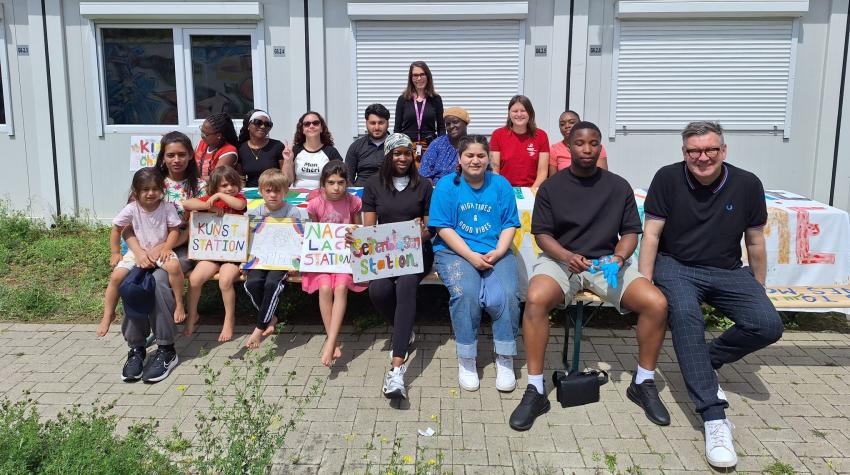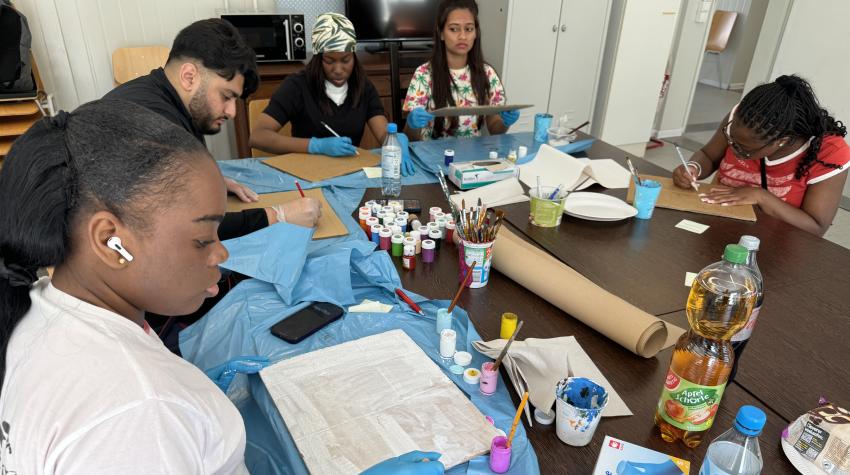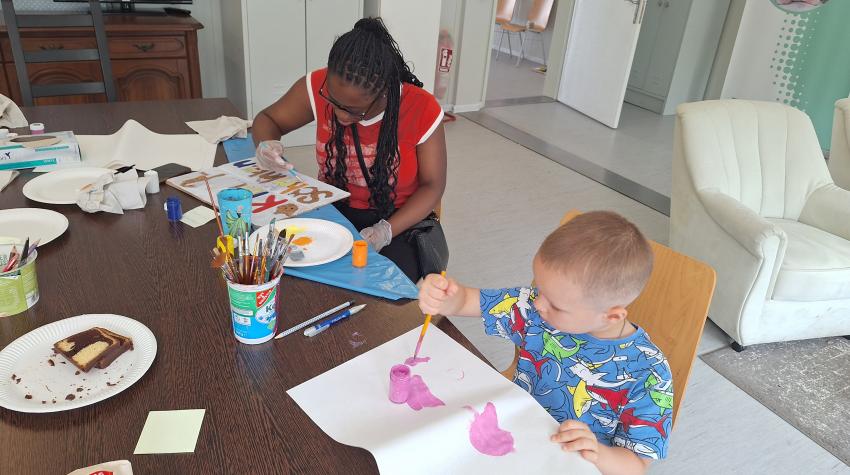
Students from De Montfort University (DMU) marked World Refugee Day (20 June) by volunteering at a home supporting people who have experienced forced migration.
The group were part of a delegation learning the principles of United Nations Sustainable Development Goal 16 during an intense week of activities in Berlin, Germany.
During World Refugee Day, the students made banners and promotions with refugees for an upcoming Summer Festival at their accommodation centre in Kreuzberg ran by HERO Services gGmbh.
Assistant manager and projects co-ordinator, Joanna Lundt, said, “We are delighted to see students from the United Kingdom here. We like people to come to us and see who the refugees are, how they enrich the community, and we encourage the exchange of knowledge between the home, the refugees and students. It is important that people continue to come forward to work with refugees and give them the support they need.”
The students made festival signs and banners with the home’s residents, including children, many of whom have fled the war in the Ukraine.
DMU student AJ Jadeyi, an Engineering Foundation Year student, said the experience in Berlin had led him to understand the complexities of forced migration. “I’ve learned the reasons that make people become refugees vary a lot. It is not as simple as one cause. I’ve learned how people are being supported as refugees and how we can contribute.”
The volunteering was co-ordinated by Serve the City Berlin, an organisation committed to engaging groups in working for meaningful causes.
Project lead Irene van der Werf said, “It is really important to get young people involved, not just to do the work, which is valuable, but to create interesting interactions, because doing these sort of activities helps us connect as humans.”
The activities in Kreuzberg had followed a day at Berlin’s refugee centre museum, Erinnerungsstätte Notaufnahmelager Marienfelde, where the group had heard a first-hand account from an Afghan refugee who was forced to flee her country when the Taliban took over, making a journey to safety in Germany.
Annabel Mwagalanyi, a PhD student studying refugee labour market integration, shared, “I have learned we should keep on doing what we are doing for refugees and start with small projects. It’s good to have big ambitions but I have seen how small acts can lead to meaningful change.”
DMU is the United Nations Academic Impact (UNAI) Hub for Sustainable Development Goal 16, Peace, Justice and Strong Institutions, and runs an annual trip to Berlin to teach the importance of working to the targets and indicators of the goal.
UNAI SDG Hub lead at DMU, Dr Mark Charlton, said, “Our volunteering work in Berlin has seen an evolution that reflects ongoing global crises. Initially we worked with people from Syria, then Afghanistan and for the past two years, people fleeing the Ukraine war. Throughout the week I see an awakening the students who really start to understand the complexities of the issues and the need to give greater support to the victims of forced migration. Most students continue to volunteer with refugees in Leicester long after the trip is over.”
The city of Berlin is chosen to teach the principles of SDG 16 because of its powerful history particularly the breakdown in democracy that led to the Nazi uprising, the Second World War and the Holocaust, the tensions of the Cold War and how the city has reinvented itself to become a welcoming city for refugees and migrants from around the world.
DMU students run a refugee advocacy campaign called Project Atefa which is open to refugees, charities and NGOs and other universities around the world. Anyone wishing to find out more can email DMU.

